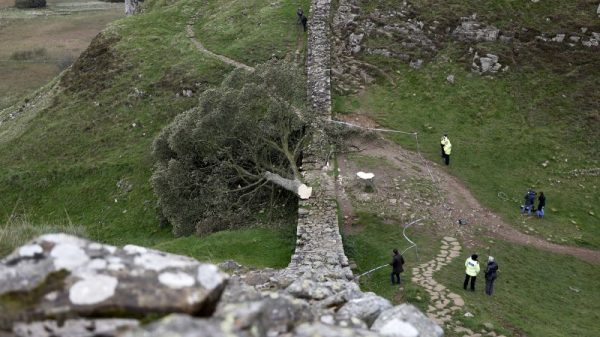Nearly two-thirds of ISIS-linked arrests in Europe in the last nine months have been of teenagers, according to a landmark academic study, as concern grows among European security officials ahead of the Paris Olympics of the growing potency and reach in the West of the Islamist militant group and its affiliate ISIS-K.
The apparent uptick in the recruitment of young radicals to carry out acts of terror comes as European security officials express worries at a potential resurgence of organized – or “directed” – terror attacks. The Summer Olympics in Paris, which start on Friday, have been specifically threatened by ISIS-K, the Islamic State in Khorasan, an active ISIS affiliate stemming from Central Asia. The group has built a remarkable presence in Turkey over the past three years, according to court documents and analysts. In 2023 alone, 426 ISIS-K suspects were detained in 122 operations, according to Turkey’s MIT intelligence agency.
A UK security source said the so-called “directed terror threat” had become a greater concern over the past 18 months, with ISIS-K the most potent group under scrutiny. Young people accessing extremist spaces and media online also continues to be a significant issue, the source said.
“Groups like (ISIS-K are) specifically targeting young teenagers,” Neumann said. “They may not be very useful. They may mess up. They may change their mind,” he said, but they are “not least less suspicious. Who would think of a 13-year-old as a terrorist? One is enough.”
Neumann added that teenagers were being recruited through social media platforms like TikTok, dragged through algorithms into “bubbles” online where jihadist recruiters can reach them.
“(ISIS-K) is by far the most ambitious and aggressive part of ISIS right now,” he said, adding this meant the group could plan larger, more complex plots with several attackers, at the same time as doing “lots of people fishing for people on the internet.”
A TikTok spokesman said: “We stand firmly against violent extremism and remove 98% of content found to break our rules on promoting terrorism before it is reported to us.”
Of the 27 plots or attacks examined by Neumann, two have conspicuously involved teenagers targeting this summer’s Olympic Games.
In late May, French prosecutors indicted an 18-year-old man of Chechen origin for “terrorist criminal association,” namely targeting spectators in the city of Saint-Étienne during the Olympics, according to a statement from Lise Jaulin, a spokeswoman for French anti-terror prosecutors. About a fortnight earlier, two men, aged 15 and 18, were arrested in northeast and southern France for plotting a terror attack, the target unclear, the statement said. In April, it added, a 16-year-old from the Haute-Savoie department in southeastern France was arrested for allegedly researching how to make an explosives belt and die as an ISIS martyr, possibly targeting the Olympics, according to the statement.
German police have also publicized two incidents allegedly involving four teenagers. Officials in Dusseldorf said in April they arrested three teenagers, a 15-year-old boy and girl, and a 16 year-old girl, accused of planning a terror attack.
Another alleged plot involving a possible knife attack on a Heidelberg synagogue, which was disrupted in May, involved an 18-year-old man, a German prosecutor’s statement said.
Swiss police in March arrested a 15-year-old Swiss boy and a 16-year-old Italian boy for ISIS support and plotting bomb attacks, according to a police statement.
And in May, a 14-year-old girl from Montenegro was arrested for plotting an attack in Austria, which was allegedly ISIS-inspired, with a knife and axe already purchased.
While these alleged plots involving teenagers do not appear to involve ISIS-K specifically, the spread of the newer ISIS affiliate presents a simultaneous and novel challenge for Western intelligence agencies. ISIS-K recruits predominantly stem not from the Arabic-speaking world, but from Central Asia, and include Russian-speaking Tajik citizens.
Bordering Afghanistan, where ISIS-K first emerged, Tajikistan has long struggled with a mix of poverty, intense political repression by its government, backed by Moscow, and a broad spectrum of Islamism from across the fervently religious region. Analysts say the Tajik minority in Afghanistan is also less represented by the Pashto Taliban government, adding to the anger at discrimination felt by Tajiks across the former Soviet Union.
The ISIS-K threat has also moved swiftly closer to Europe, as a wide wave of arrests in Turkey has exposed. An 87-page indictment, relating to the detention of 18 ISIS-K suspects, many of them Tajik, for an alleged terror conspiracy involving training, support and an attack on the Swedish consulate in Istanbul, gives a rare window into the “black box” of ISIS-K plotting. It reveals how a shadowy figure, known to the detainees as “Rustam,” directs plots in the West – and training for them – from the Afghanistan-Pakistan border.
The indictment says: “Rustam/Rüstem (K) is the Tajik who is the current head of the ISKP Foreign Operations unit.” The indictment quotes one suspect saying Rustam used multiple, changing handles on the Telegram messaging app. “Generally, Rustam deletes the telegram every 15-20 days as a precaution,” the detainee said. “After I deleted it, he would contact me with another username.” Several of the detainees refer to Rustam as an external operations and explosives director for ISIS-K. Last week, 13 of the accused in this case were sentenced for between six to 10 years for involvement in the plot, while another three were set free.
The indictment, first reported in Turkish media, also describes, through the testimony of detainees, how a conveyor belt of ISIS-K recruits moves through an array of hotels in Istanbul. Some then go via Iran to receive training in Afghanistan. Others travel freely back and forth to Russia, where ISIS-K killed 137 people in a horrific attack on the Crocus City Hall in Moscow in March.
The extent of ISIS-K’s use of Turkey as a transit hub is acknowledged by officials in the Turkish indictment. “Central Asian Foreign Terrorist fighters could use the Turkey-Iran route in 2023, this could lead not only to prestige loss for our country but also, there is the threat that these elements could look to carry out a large scale (blockbuster/mega) action in our country,” the indictment says.
ISIS-K attacked a Catholic church in Istanbul in January, killing one, the first major assault in Turkey since 2017, after a hiatus which analysts suggested was used to regroup after the Taliban takeover in Afghanistan in 2021 and the fall of the so-called ISIS caliphate in Syria and Iraq. A decade ago, Turkey was criticized by some analysts for its apparently lax attitude towards extremist Islamists using its border area with Syria and Iraq.






































